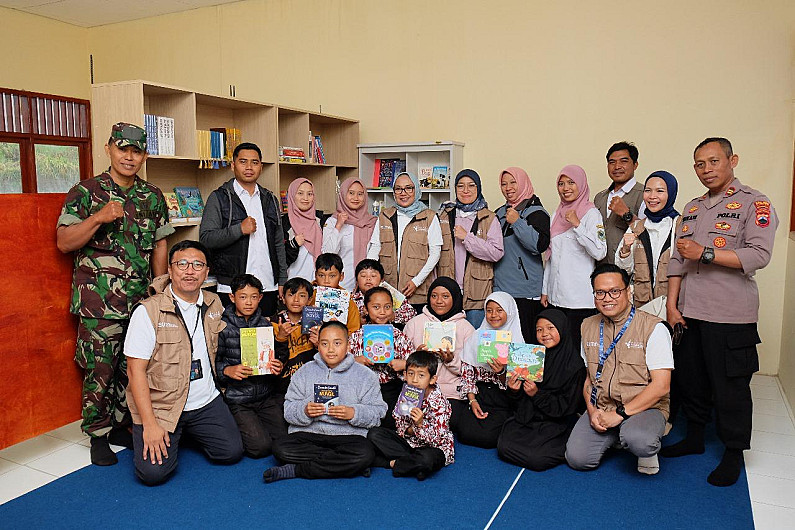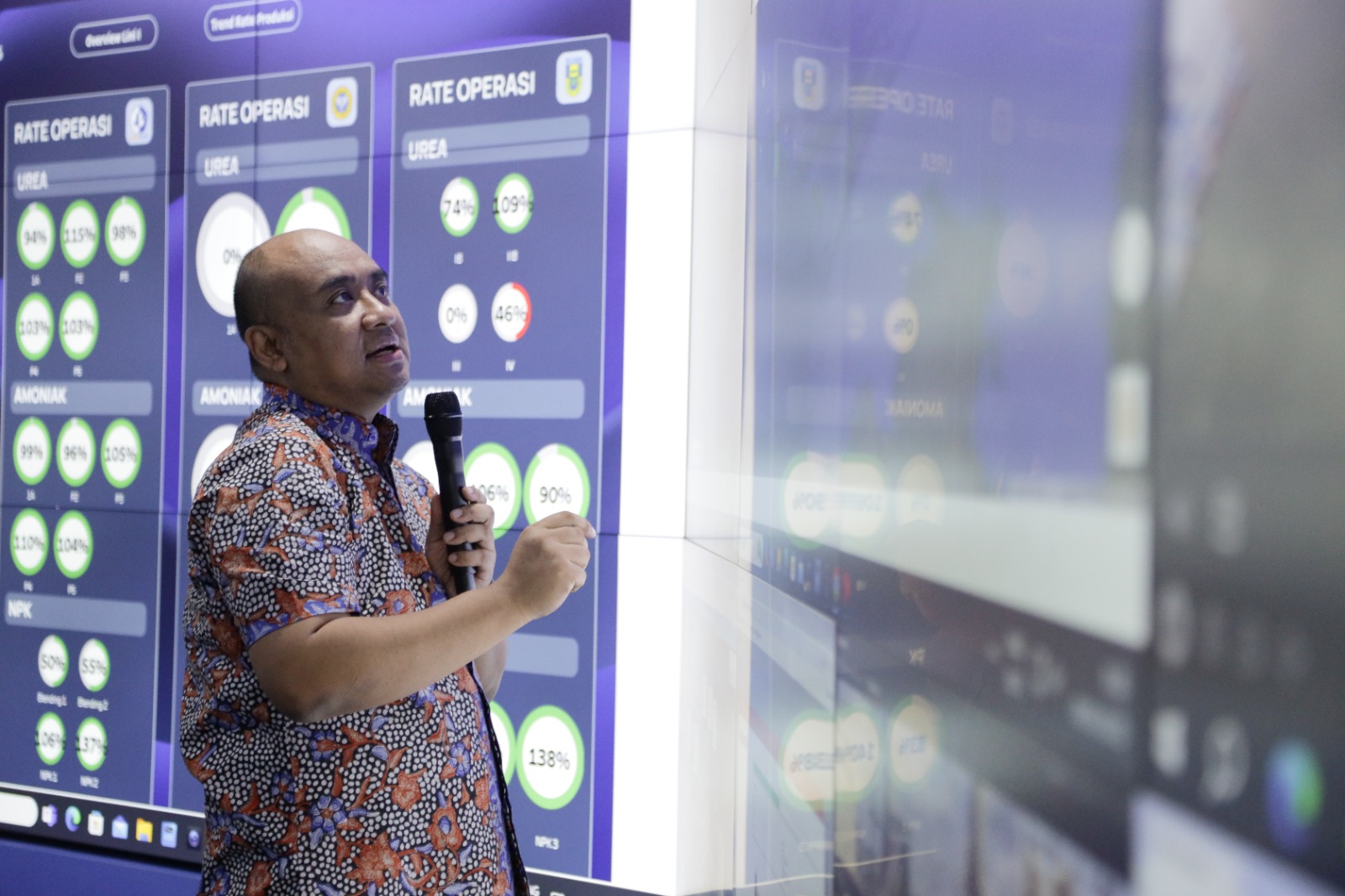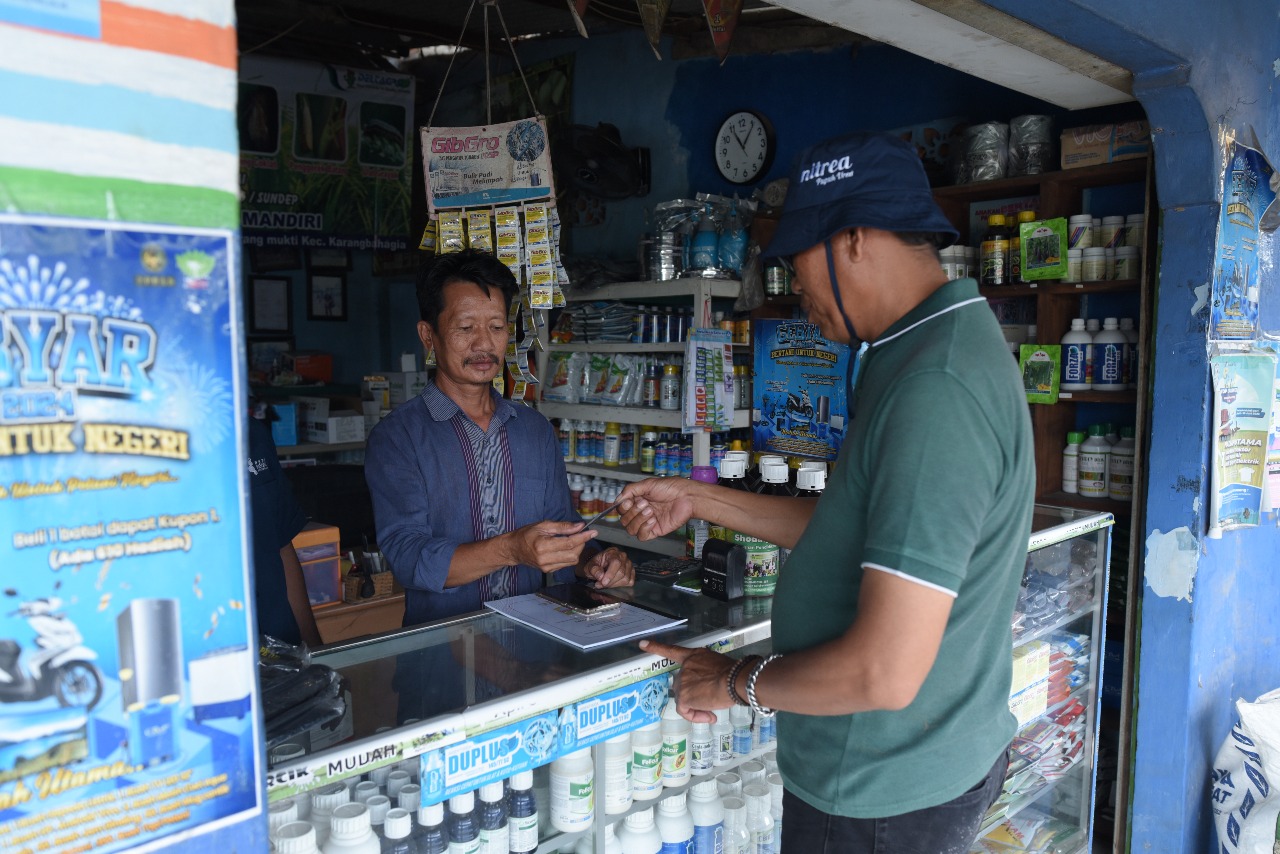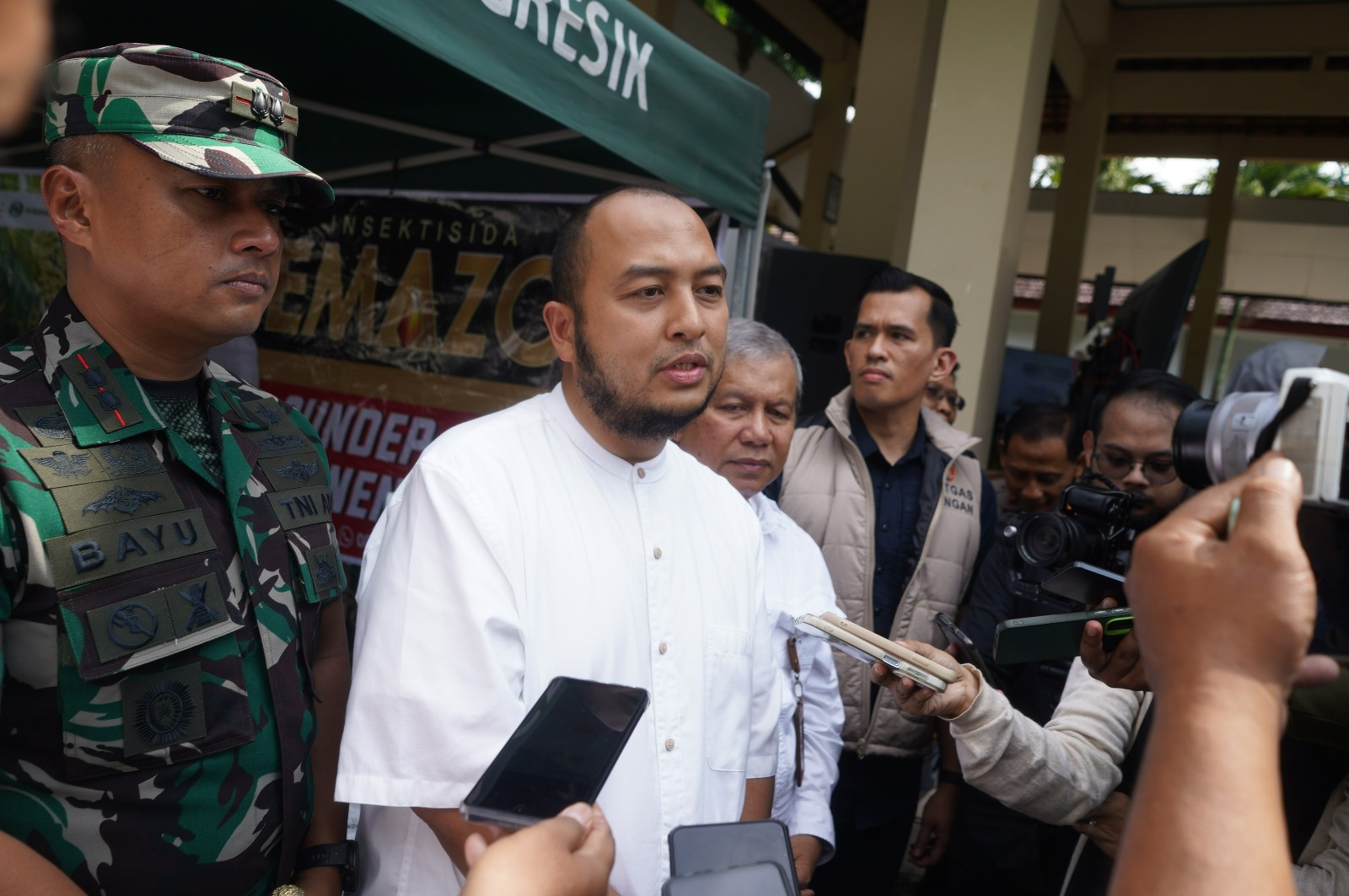Pupuk Indonesia Dorong Ekosistem Pertanian Terintegrasi di Dieng Lewat Program AKSI

Banjarnegara, 26 September 2024 – Sebagai BUMN, PT Pupuk Indonesia (Persero) terus berkomitmen pada tanggung jawab sosial dan lingkungan (TJSL) yang berfokus pada creating shared value (CSV). Kali ini, perusahaan melihat pentingnya keterlibatan karyawan internal untuk turut memastikan dampak dari program yang optimal, tidak hanya bagi masyarakat, lingkungan, melainkan juga perusahaan.
Melalui program Ajang Kolaborasi Seluruh Insan (AKSI) yang dilakukan di Desa Dieng Kulon, Banjarnegara, Jawa Tengah, sebanyak 100 karyawan Pupuk Indonesia grup yang tersebar di berbagai bidang mulai dari pemasaran, SDM, riset, hingga anggaran, terlibat langsung untuk menciptakan ekosistem pertanian berkelanjutan, lewat kolaborasi berbasis kompetensi.
Direktur Sumber Daya Manusia (SDM) Pupuk Indonesia, Tina T. Kemala Intan (Mengenakan hijab warna biru pada gambar), mengatakan, “Melalui AKSI, tentunya karyawan tidak hanya bertugas untuk memperoleh pendapatan dan mencari keuntungan tapi juga memperhatikan masyarakat dan lingkungan yang berkaitan dengan bisnis kita, juga mendapatkan manfaat dari Pupuk Indonesia. Hal ini sejalan dengan arahan dari Kementerian BUMN untuk memperhatikan dan memberikan manfaat bagi lingkungan, terutama terkait dengan pendidikan dan peningkatan kompetensi masyarakat setempat.”
Lebih lanjut, pemilihan Desa Dieng Kulon sebagai lokasi sasaran inisiatif AKSI ini didasari oleh potensi pertanian lokal, dengan luas lahan pertanian komoditas kentang mencapai 163.000 hektar, 23 usaha pertanian pangan, 593 usaha hortikultura, 99 usaha peternakan, 34 usaha kehutanan, 4 usaha perkebunan dan 1 usaha perikanan.
Selain itu, jumlah populasi usia produktif yang mencapai lebih dari 2.000 penduduk pun dapat menjadi penggerak bagi perekonomian lokal jika mampu berdaya secara optimal. Oleh karena itu, program AKSI yang tersebar dalam 4 fokus yaitu pertanian, pendidikan, lingkungan, dan sosial diharapkan dapat memberikan manfaat optimal bagi komunitas sekitar.
Program ini tak hanya menargetkan terciptanya dampak positif kepada masyarakat, namun juga nilai bagi perusahaan. Oleh karena itu, program AKSI juga berkolaborasi dengan 24 stakeholder yang terdiri dari pemerintah, petani, distributor, hingga anak perusahaan guna menciptakan ekosistem yang terintegrasi dengan rantai nilai perusahaan. Melalui strategi ini, para petani lokal dapat meningkatkan produktivitas mereka melalui ketersediaan pupuk di berbagai kios terdekat, hingga pengelolaan limbah organik yang dapat memberikan nilai ekonomi tambah.
Sementara itu, Koordinator Tanggung Jawab Sosial dan Lingkungan (TJSL) Kementerian BUMN Hera Zera yang turut hadir langsung pada acara AKSI menyatakan harapannya untuk replikasi program serupa di daerah lain, “Kementerian BUMN mengharapkan tanggung jawab sosial dan lingkungan yang dilakukan oleh perusahaan dapat memberikan dampak positif dan meningkatkan kualitas hidup masyarakat, terutama di bidang pendidikan, lingkungan dan ekonomi. Itu semuanya sesuai dengan kegiatan AKSI. Hal yang penting adalah creating shared value, dimana ada feedback yang diberikan oleh masyarakat kepada Pupuk Indonesia secara langsung maupun tidak langsung, seperti pemberian modal kerja serta pendampingan oleh PI Grup. Kami yakin kalau keberhasilan ini bisa memberikan nilai yang bagus, tentu akan diadopsi di daerah lain untuk diinisiasi kembali.”
Pupuk Indonesia juga telah merancang dan menargetkan program AKSI agar dapat membantu terciptanya kemandirian Badan Usaha Milik Desa (BUMDES), dan dapat direplikasi di daerah lain pada 2025. Program AKSI juga merupakan pengembangan dari program Social Tour Dambaan (Dampak Baik Berkelanjutan) yang sukses dilaksanakan di 2023 dan mendapat dukungan positif dari masyarakat, serta penghargaan Platinum di Anugerah Bisnis Indonesia Social Responsibility Awards (BISRA) 2024. Tahun ini, program AKSI mengembangkan sayapnya untuk membantu peningkatan ekonomi dan kepedulian lingkungan masyarakat.
“Kami berharap AKSI tidak hanya memberikan manfaat jangka pendek saja, namun juga dapat mengajak petani untuk memperhatikan hal-hal seperti itu sehingga terciptanya pertanian berkelanjutan yang menguntungkan bagi pelaku pertanian, dan juga perusahaan,” tutup Tina.







